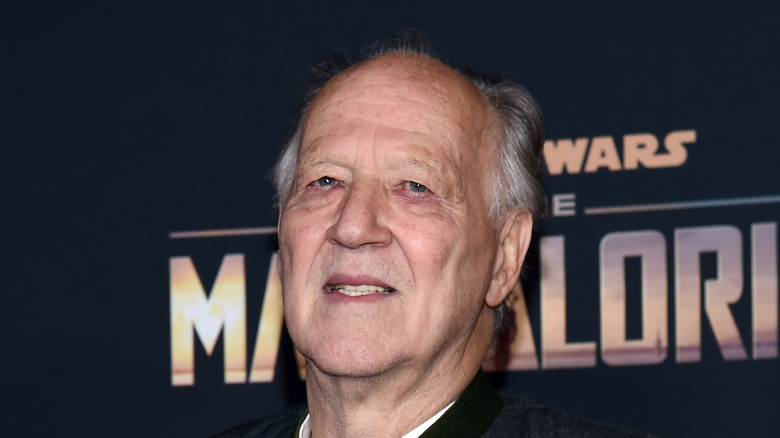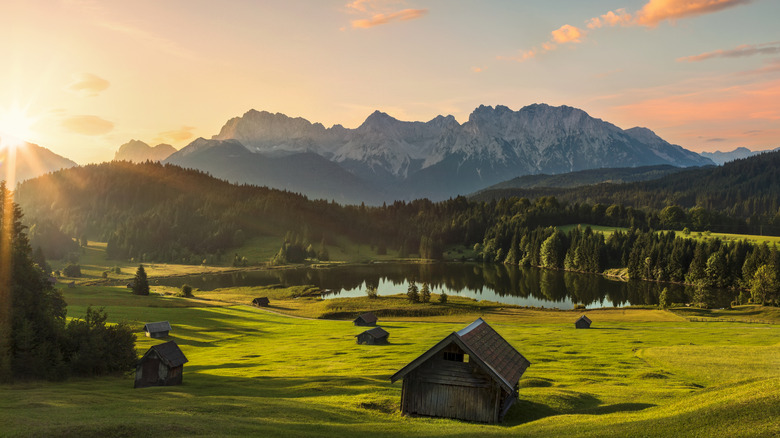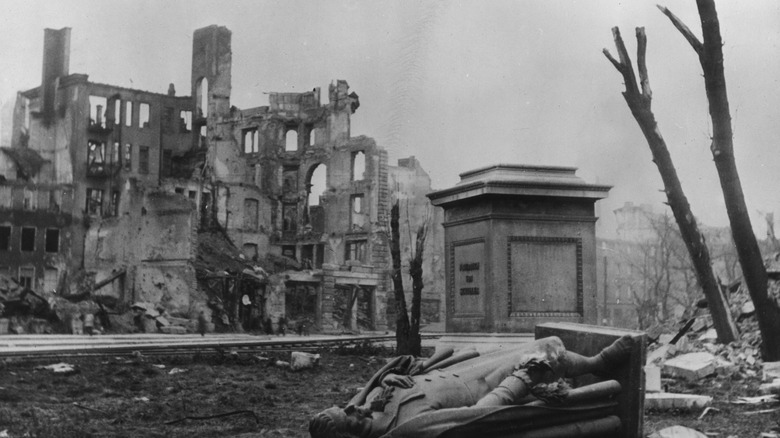Inside Werner Herzog's War-Torn And Impoverished Childhood
The Allied bombs rained down on Munich. It was the fall of 1942, and Werner Herzog, who would go on to become a world-famous film director, was just 2 weeks old. A bomb completely destroyed a neighbor's house and partially destroyed Herzog's family home. "My mother discovered me, the baby, under a foot of shards of glass and debris, but I was unhurt," Herzog told Terry Gross on NPR in 1998. His mother Elisabeth took him and his older brother and fled, settling in a remote Bavarian village on the Austrian border.
There, he grew up in a world isolated from modernity and rife with hunger. They had no running water, no mattresses, and little food, according to The New York Times. "I'd never seen movies," he told NPR. "I'd never seen a TV set. I barely had seen cars in my life. ... I remember the hardships and I remember that I was hungry as a child, and we had nothing to eat."
Hungry but happy
Werner Herzog's life in the village wasn't easy. He grew up without his father, who was in the war and later became a POW, according to Herzog's 1998 NPR interview. When he was 4 or 5, he found a cache of weapons left by fleeing German soldiers. "I had a working submachine gun and ... tried to hunt a crow because I wanted to make a soup, I was so hungry," he recounted. His mother caught him and demonstrated how dangerous the weapon he'd found was by firing a round through a beechwood log.
But even with the family's dire circumstances, Herzog had the freedom to roam through the countryside and fish for trout, away from the war that raged all around them. "I had a wonderful childhood," he told NPR. At 11, he saw his first film when a "traveling projectionist" came to his rural village, per the CBC — an event that would lead Herzog to his chosen career.
Postwar period
Even during the postwar period when Germany was under Allied control and the country's major cities lay in ruins, Werner Herzog and his family — while still poor — had a very different experience than many Germans during that time. "In this mountain village there was no real warfare," he told NPR. "It was just occupied by 60 Americans at the very, very end of the war ... The climate was not the climate of total destruction that Germany had witnessed all around me. It was a mountain village, a mountain valley, remote and just nature around."
Herzog met and befriended a Black GI at that time. He'd never seen a Black person until then. "I immediately became friends with him and talked to him for hours," he recalled. When Herzog was 12, he and his family returned to Munich and came face to face with the bombed-out cityscape. He also discovered the modern world. "I made my first phone call at the age of 17, but I made my first movie at the age of 19," he told NPR.


